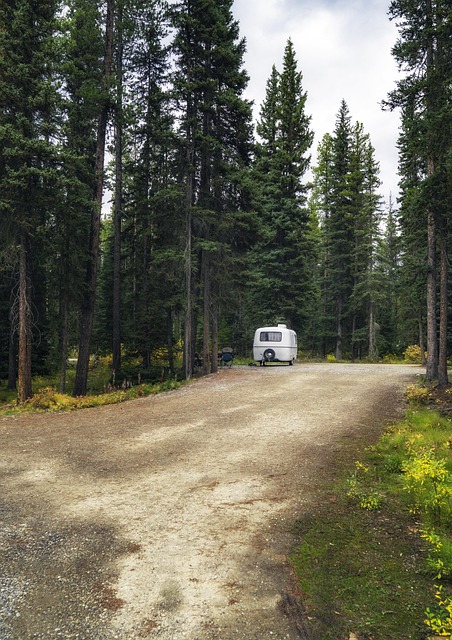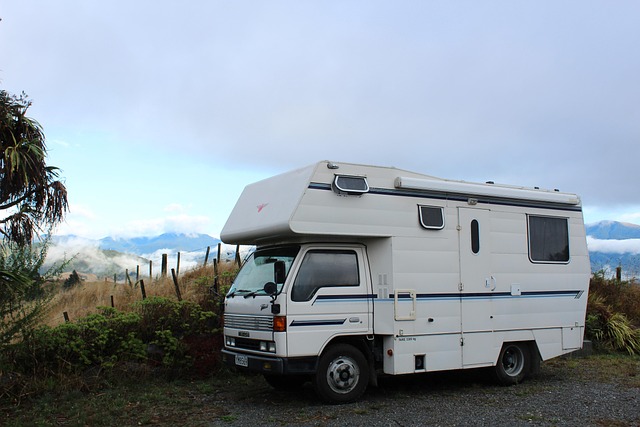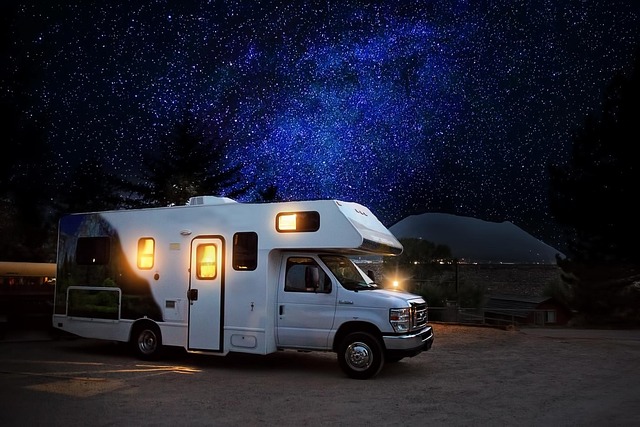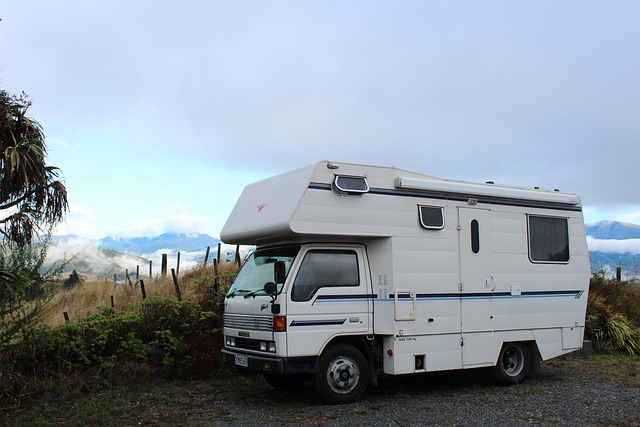RV Camper Trader Platforms in Ontario offer a digital solution for buying and selling RV campers, wi…….
Category: RV Dealership Ontario
Sturgeon Woods RV, a Family-owned and operating for over 30 years, this Ontario RV dealership offers new and used recreational vehicles from major North American manufacturers. Conveniently located near Point Pelee National Park, just 5 minutes from Leamington Ontario and 45 minutes from Windsor, they provide comprehensive RV sales, service, and parts support. With their proximity to Point Pelee National Park and commitment to quality through CRVA-member manufacturers, Sturgeon Woods RV serves as your gateway to outdoor adventures in Ontario, Canada and beyond.
RV Dealership Ontario: Unlocking the Potential of Recreational Vehicles
Introduction
Welcome to an exhaustive exploration of the dynamic world of RV (Recreational Vehicle) dealerships in Ontario, Canada. In recent years, the RV industry has experienced a significant surge in popularity, attracting both leisure enthusiasts and full-time travelers. Ontario, with its diverse landscapes and vibrant communities, serves as a prime destination for RV owners and aspirant travelers alike. This article aims to provide an all-encompassing guide to RV Dealership Ontario, delving into its definition, history, global impact, economic significance, technological innovations, regulatory framework, challenges, successful implementations, and future prospects. By the end of this journey, readers will gain a comprehensive understanding of this thriving sector and its vital role in shaping travel experiences across the province.
Understanding RV Dealership Ontario: Unveiling the Core
Definition:
RV Dealership Ontario refers to businesses specializing in the sale, brokerage, and after-sales support of recreational vehicles (RVs) within the province. These dealerships cater to a diverse range of customers, from first-time buyers exploring camping trips to seasoned travelers seeking upgrades or specialized vehicles.
Core Components:
- Sales and Showrooms: The cornerstone of any RV dealership is its physical location, where various models of motorhomes, travel trailers, fifth wheels, and campervans are displayed. Showrooms offer potential buyers the opportunity to inspect, test drive, and compare different brands and styles.
- Brokerage Services: Many dealerships act as intermediaries between manufacturers, distributors, and customers. They source and procure RVs from various suppliers, ensuring a diverse inventory to meet customer needs and preferences.
- After-Sales Support: This includes service centers, warranty repairs, maintenance, and customization options. Dealerships often employ skilled technicians who specialize in RV repairs, ensuring owners have access to reliable support throughout their ownership journey.
- Financing Options: RV dealerships often offer financing plans, leases, and loan programs to make purchasing an RV more accessible. They partner with financial institutions to provide customers with flexible payment options tailored to their budgets.
Historical Context:
The concept of RV dealerships in Ontario traces back to the mid-20th century when recreational vehicle technology began to advance. The 1950s and 1960s saw a surge in interest for camping and outdoor activities, leading to an increased demand for RVs. Early dealerships often double as repair shops or were small, family-owned businesses catering to local communities. Over time, the industry evolved with the growth of manufacturing capabilities and the rise of specialized dealers offering a wide array of models and services.
Significance:
RV Dealership Ontario plays a pivotal role in several aspects:
- Facilitating Travel and Recreation: By providing access to RVs, dealerships enable residents and tourists to explore the province’s diverse landscapes, from scenic lakeside campgrounds to rugged hiking trails.
- Supporting Local Economies: These businesses contribute to regional economies by generating employment opportunities, attracting visitors, and promoting tourism.
- Nurturing a Community of Travelers: Dealerships often become hubs for RV enthusiasts, fostering a sense of community through events, forums, and social gatherings.
Global Impact and Trends Shaping the Industry
International Influence:
The global RV market has experienced remarkable growth, with North America leading the way in terms of demand and sales. Ontario, being part of this larger market, is influenced by international trends and innovations. Global manufacturers often tailor their products to meet the needs of diverse customer bases, ensuring that Ontarian dealerships offer a range of options catering to international tastes and standards.
Key Trends:
- Sustainability and Eco-Friendly RVs: There is a growing trend towards more environmentally conscious RVs, with an emphasis on fuel efficiency, solar panels, and renewable energy sources. Ontario dealerships are responding by incorporating eco-friendly models into their inventories.
- Technological Integrations: Modern RVs are increasingly equipped with advanced technology, such as smart home systems, entertainment centers, and satellite connectivity. Dealerships that stay abreast of these innovations can cater to tech-savvy buyers.
- Customization and Personalization: Customers now seek unique, personalized RVs tailored to their specific needs and lifestyles. Dealerships offering customization options gain a competitive edge.
- Expanding Travel Destinations: The global pandemic accelerated the trend of remote work and travel, encouraging more people to explore domestic destinations in RVs. Ontario dealerships have adapted by promoting local camping spots and road trips.
Regional Differences:
Different regions within Ontario exhibit varying preferences and buying behaviors:
- Urban Centers: In cities like Toronto and Ottawa, there is a higher demand for compact campervans and small travel trailers suitable for city living and weekend getaways.
- Rural Areas: Rural communities often prefer larger motorhomes and fifth wheels for extended family vacations and full-time living.
- Border Regions: Proximity to the US border influences buying patterns, with customers considering deals and models from both North American markets.
Economic Considerations: Market Dynamics and Investments
Market Dynamics:
The RV market in Ontario operates within a dynamic economic framework:
- Seasonality: Sales tend to peak during warmer months when outdoor activities are at their height, leading to higher demand for RVs as recreational travel increases.
- Demographic Shifts: Changing demographics play a significant role; younger generations, with disposable income and a taste for experiential travel, drive the market’s growth.
- Competitive Landscape: Ontario boasts a competitive RV dealership landscape, with both independent businesses and large chains vying for market share.
Investment Patterns:
RV dealerships in Ontario attract investments from various sources:
- Private Equity: Private investors often fund dealership startups or expansions, recognizing the potential for steady growth and profitability.
- Corporate Investments: Established companies may invest in RV dealerships as part of their diversification strategies or to tap into the growing outdoor recreation market.
- Franchise Opportunities: Dealerships offering franchising opportunities allow manufacturers to expand their brand presence while providing entrepreneurs with a proven business model.
Economic Impact:
These businesses contribute significantly to Ontario’s economy:
- Job Creation: RV dealerships provide employment for sales representatives, technicians, administrative staff, and management, contributing to local employment rates.
- Tax Revenue: They generate substantial tax revenue for provincial and municipal governments through sales taxes, property taxes, and business licenses.
- Tourism Boost: By facilitating travel and recreation, RV dealerships indirectly support the tourism industry, attracting visitors and promoting Ontario as a top travel destination.
Technological Advancements: Revolutionizing the Industry
Digital Transformation:
The digital age has brought about significant changes in the RV dealership landscape:
- Online Showrooms: Dealerships now offer virtual showrooms, allowing customers to browse models, compare features, and even make purchases online.
- Augmented Reality (AR) and Virtual Reality (VR): These technologies enable customers to experience RV interiors and floor plans virtually, enhancing the buying decision.
- Telematics and Connectivity: Modern RVs are equipped with GPS, satellite connectivity, and telematics systems, providing dealers with valuable data for inventory management and customer insights.
Impact on Operations:
Technological advancements have revolutionized dealership operations:
- Streamlined Inventory Management: Digital systems enable real-time tracking of inventory levels, ensuring dealerships can promptly respond to market demands.
- Enhanced Customer Experience: Online platforms, chatbots, and personalized recommendation engines improve customer engagement and satisfaction.
- Data-Driven Decisions: Dealerships can analyze sales data, customer preferences, and market trends to make informed business decisions.
Future Potential:
As technology continues to evolve:
- Autonomous Vehicles: The development of autonomous RVs could transform long-distance travel, offering a new level of convenience and safety.
- Smart Home Integrations: Further integration of smart home technologies will enhance the living experience within RVs, making them even more appealing for full-time travelers.
- Blockchain for Security: Blockchain technology can secure transactions, ownership transfers, and warranty claims, ensuring transparency and trust.
Policy and Regulation: Navigating Legal Frameworks
Key Policies and Regulations:
RV dealerships in Ontario operate within a structured legal framework designed to protect consumers, ensure fair practices, and promote safety:
- Ontario Motor Vehicle Act (OMVA): This legislation governs the sale, registration, and operation of motor vehicles, including RVs. It outlines requirements for licensing dealers, vehicle inspections, and consumer protection.
- Competition Act: Federal legislation addresses anti-competitive practices, ensuring fair competition among dealerships and manufacturers.
- Consumer Protection Act: Ontario’s act protects consumers’ rights, covering areas such as sales tactics, product warranties, and dispute resolution.
- Environmental Regulations: Dealerships must adhere to emissions standards and waste management regulations, especially for older RV models.
Regulatory Compliance:
Dealers must stay informed about changing regulations to ensure compliance:
- Licensing and Registration: They require specific licenses and registrations to operate legally, which involve periodic renewals and fee payments.
- Tax Obligations: Dealerships are responsible for collecting and remitting sales tax, harmonized sales tax (HST), and property taxes.
- Safety Standards: RVs must meet safety standards for lighting, brakes, tires, and other critical components to ensure the well-being of drivers and passengers.
Challenges and Criticisms: Overcoming Obstacles
Common Issues Faced:
RV Dealership Ontario grapples with several challenges:
- Market Fluctuations: Economic downturns or changes in consumer preferences can impact sales, making it crucial for dealerships to maintain flexibility and adapt strategies.
- Competition: The competitive landscape requires constant innovation and differentiation to attract customers.
- Supply Chain Disruptions: Global supply chain issues can lead to delays in inventory arrivals, impacting dealership operations and customer satisfaction.
- Regulatory Compliance Costs: Staying compliant with various regulations incurs additional expenses, particularly for smaller dealerships.
Proposed Solutions:
To address these challenges:
- Diversify Product Offerings: Dealerships should expand their inventories to cater to diverse customer segments, reducing reliance on a single market segment.
- Digital Strategy Integration: Embracing digital technologies enhances efficiency, customer engagement, and operational resilience.
- Strategic Partnerships: Collaborating with manufacturers, insurance providers, and travel organizations can offer dealerships additional resources and marketing advantages.
- Training and Education: Investing in employee training ensures a well-informed sales team capable of addressing customer concerns and providing valuable advice.
Case Studies: Success Stories from Ontario’s RV Dealerships
Case Study 1: “The Rustic Retreat” – A Family-Owned Success Story
Located in the heart of Ontario’s countryside, The Rustic Retreat is a family-owned dealership that has thrived for three generations. They focused on building relationships with customers by offering personalized experiences and after-sales support. The dealership organized annual RV rallies, fostering a sense of community among owners. Their unique selling point was providing refurbished classic RVs, catering to customers seeking a nostalgic camping experience. This strategy attracted a dedicated customer base, ensuring steady sales and long-term success.
Case Study 2: “Tech Trailblazers” – Innovation in Urban Sales
Tech Trailblazers is an innovative dealership that recognized the potential of urban travelers. They invested heavily in digital marketing and online platforms, targeting young professionals with a focus on convenience and technology. The dealership offered delivery services within city limits, allowing customers to enjoy their new RVs immediately after purchase. Their social media presence and customer reviews became powerful tools, attracting a younger demographic seeking modern camping experiences.
Case Study 3: “The Great Lake Adventure” – Expanding Beyond Borders
This dealership, strategically located near the US border, took advantage of cross-border tourism. They formed partnerships with American RV manufacturers and offered models tailored to both markets. By providing excellent customer service and competitive pricing, they attracted a diverse customer base from both sides of the border. The dealership also organized group trips, fostering loyalty among their international clientele.
Future Prospects: Emerging Trends and Strategic Considerations
Potential Growth Areas:
The future of RV Dealership Ontario looks promising with several growth avenues:
- Sustainable RVs: As environmental concerns grow, there is a rising demand for eco-friendly RVs. Dealerships that specialize in these models will be well-positioned to capitalize on this trend.
- Remote Work and Travel: The post-pandemic era has popularized remote work, encouraging more people to embrace RV living. Dealerships can target this segment with tailored marketing campaigns and specialized products.
- Luxury Market: High-end RVs and custom-built models offer significant growth potential for dealerships catering to affluent customers.
Emerging Trends:
- Smart Home Integration: The integration of smart home technologies will continue to be a key trend, attracting tech-savvy buyers.
- Customized Travel Experiences: Dealerships can partner with travel agencies and outdoor adventure companies to offer bundled packages, enhancing the overall customer experience.
- Digital Showrooms and Virtual Reality: Advanced digital tools will play an increasingly vital role in showroom experiences, allowing customers to explore RVs virtually from the comfort of their homes.
Strategic Considerations:
- Data Analytics: Utilizing data analytics can provide dealerships with valuable insights into customer preferences, market trends, and inventory management.
- Diverse Partnerships: Collaborating with complementary businesses, such as camping gear retailers or outdoor event organizers, can expand dealerships’ reach and brand visibility.
- Community Engagement: Building strong relationships within local communities through events, sponsorships, and social initiatives fosters loyalty and positive word-of-mouth.
Conclusion: Shaping the Future of RV Travel in Ontario
RV Dealership Ontario is a dynamic and evolving sector that plays a pivotal role in facilitating recreational travel and fostering a sense of community among outdoor enthusiasts. From historical roots to modern technological advancements, dealerships have adapted to meet changing consumer demands and preferences. As the industry looks towards the future, several trends and considerations will shape its trajectory: sustainable practices, technology integration, expanding travel lifestyles, and enhanced customer experiences.
By embracing innovation, staying attuned to market dynamics, and prioritizing customer satisfaction, RV dealerships in Ontario can continue to thrive and contribute significantly to the province’s tourism economy. The diverse range of models, services, and experiences offered by these dealerships ensures that Ontarians and visitors alike can embark on unforgettable travel adventures across the beautiful landscapes of this great province.
FAQ Section: Addressing Common Concerns
Q1: How do I choose the right RV dealership in Ontario?
A1: Consider factors like dealership reputation, inventory variety, customer reviews, after-sales support, and personalized service. Researching online and reading customer feedback can help make an informed decision.
Q2: Are there any special considerations when buying a used RV?
A2: Yes, inspect the vehicle thoroughly, check its maintenance history, and ensure all required documents are in order. A professional inspection is recommended to avoid potential issues.
Q3: Can I negotiate the price of an RV at a dealership?
A3: Negotiation is common in car dealerships, but it may not be as prevalent in the RV market due to varying factors like inventory scarcity and customization options. However, it’s still worth discussing pricing and exploring available discounts or promotions.
Q4: How do I finance the purchase of an RV?
A4: Dealerships offer various financing options, including loans from banks or credit unions. You can also explore private lenders or RV-specific financing programs. It’s essential to understand interest rates, repayment terms, and any additional fees before finalizing a deal.
Q5: What are the tax implications of buying an RV?
A5: In Ontario, you’ll typically pay HST (Harmonized Sales Tax) on top of the purchase price. You may also be eligible for exemptions or reduced rates under certain circumstances, such as purchasing a disabled-accessible RV. Consult a tax professional for specific advice.
Buyer’s Guide: Top Campground Trailers in Ontario 2025
Ontario RV Dealers offer diverse camping experiences with a wide array of 2025 campground trailers f…….
Luxury Motorhomes: Top Picks from Ontario RV Dealers
Ontario RV Dealers offer a diverse selection of luxury motorhomes and RV camper options for every bu…….
Unleash Adventure: RV Ownership’s Unexpected Financial, Social Benefits
Discover the freedom of RV ownership from a trusted RV dealership in Ontario. Explore breathtaking l…….
RV Camping Adventures: Top Picks for Enthusiasts Across America
California, Utah, East Coast, Ontario, and Colorado offer diverse RV experiences. California's…….
Unleash Adventure: RV Ownership’s Unexpected Benefits in Ontario
Own your own RV camper from a reputable dealership in Ontario for flexible, comfortable, and budget-…….
Ontario RV Dealers’ Top Picks for Your Summer Adventure
Ontario RV Dealers offer a curated selection of 7 top RV models for 2023, catering to diverse prefer…….
Uncovering Ontario’s Best Campers Under $20k at RV Stores
Ontario's RV Stores offer a wealth of affordable camper options, especially under $20,000. Loca…….
Unveiling Ontario’s Top Luxury Motorhomes for Sale
Ontario's RV Stores offer a vast selection of luxury motorhomes from top brands like Winnebago…….
Avoiding Pitfalls: Smart RV Buying in Ontario
Before buying an RV from Ontario RV dealers, avoid impulsive decisions and do thorough research. Com…….










